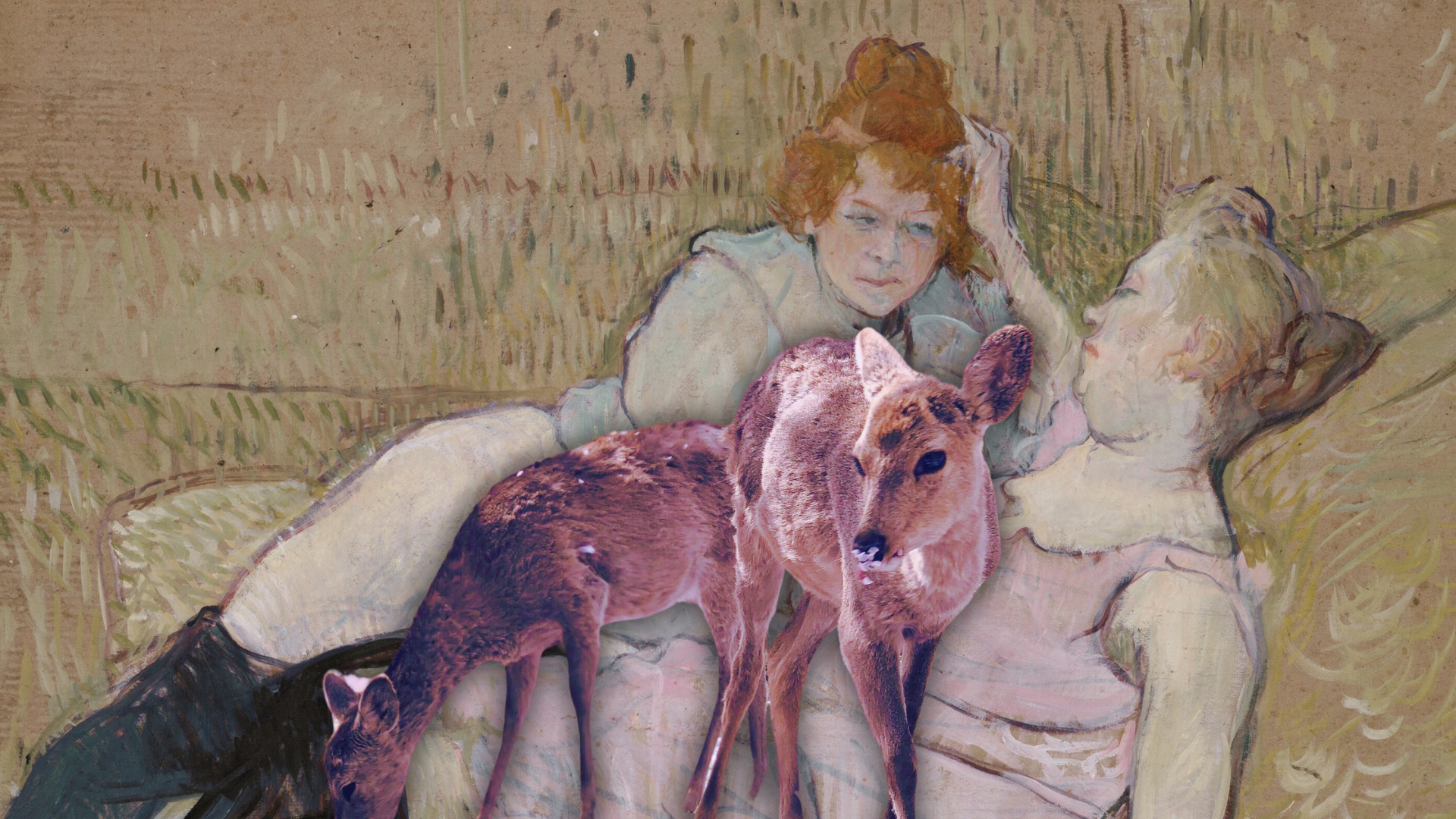If you’ve been on the Internet, you’ve probably heard by now that Disney is ushering Bambi into the queue of its (mostly not great) cartoon-to-live-action adaptations.
Cue the jokes, cue the laughter. Yes, Bambi: the famously traumatic tale of a young buck whose mother dies at the hand of hunters. It’s going to be remade with real (CG) deer actors. Just what the culture needed.
But Bambi the film is, quite famously, a far cry from “Bambi” the novel. For one thing, Walt Disney—who paid Bambi author Felix Salten a pittance for the rights to his tale—adapted what was meant as an allegory for Jews trying to survive during the rising tide of the Nazi party in the 1920s into a pro-war parable of masculinity. As the 1941 film was coming out, the Austro-Hungarian Jew Salten was fleeing Nazi Germany with his wife.
But let’s rewind for a second. Before Disney started on this thorny path of adapting all its classic cartoons into live-action features, before Walt Disney bought the rights to Disney, before World War II changed “Bambi’s” legacy forever, its author was anonymously writing steamy porn about a bisexual (really omnisexual, to be fair) woman named Josefine.
Related:
This Forgotten French Novel Explores Lesbian Sex in the Parisian Underworld
It feels unbelievable to read about an open lesbian relationship in the deeply Catholic world of Second Empire France–until you learn the reason why.
“Josefine Mutzenbacher” or “The Story of a Viennese Whore, as Told by Herself” is precisely what it sounds like: it’s a classic erotic tale, the story of a sex worker’s rise and…rise in seedy world of late-19th century Austria. In the style of the Marquis de Sade, Josefine takes on everything and everyone, from curates, high-paying johns, orgies, brothers, cousins, her own father, and, yes, other women.
The book, as you can imagine, caused quite a stir when it hit shelves in 1906, almost 20 years before “Bambi’s” publication. Josefine is not shy about describing the members of her clientele, and also the often “firm, apple-shaped” breasts of the ladies she goes to bed with. In Kelsey Osgood’s fantastic 2014 essay, she describes Josefine, nicknamed “Pepi”, as “something of an erotic robot, offering herself up like a frosted cupcake to potential paramours both male and female.”
Now, granted, because this book was absolutely written for the male gaze, most of the female eroticism is centered around a discussion of pleasing men and instructing other women how to get them off. But there’s more than a fair share of queerness in the text, if only due to the fact that at this period of erotic writing, truly anything goes. The text took off immediately on publication, and was quickly judged too obscene for public consumption. In 1913, a mere 7 years after its original publication, the book was banned in Salten’s native Austria. For decades, scholars debated about whether or not “Josefine Mutzenbacher” qualified as child pornography. It’s now considered a classic of erotica, but that label was hard-won.
And here’s where things get really queer: in a 1990 trial whose conclusion was deemed as “The Muntzenbacher Decision,” the German constitutional court tried to figure out whether this nearly 100-year-old book was fit for young readers. 1990 was, of course, a watershed year: after the 1989 falling of the Berlin Wall, a newly-united Germany started taking (slow) steps to combat the country’s history of anti-gay practices. By 1991, a law excluding citizens from the military on grounds of homosexuality was formally struck down. By 2001, the country started nullifying the Nazi-era charges that sent thousands of gay and trans Germans to their deaths in the concentration camps. For contrast: in the United States in 1990, the Supreme Court repealed a law that forbid gay immigrants from crossing over to the states, and “Don’t Ask, Don’t Tell” was still in full effect. We were still 13 years away from the “Lawrence v. Texas” decision that would rule all remaining anti-sodomy laws in the states unconstitutional.
So why does all this matter? Well, because The Mutzenbacher Decision was an older version of the kind of book and education bans we’re seeing now. By 1992, the work was judged inappropriate for the consumption of minors, along with a long list of other materials that would stay banned for years.
Now censorship isn’t always the worst thing on Earth, and Germany has, quite obviously, a very different history than we do—for instance, they also make a habit of banning all Nazi-related materials and literature from youth consumption. But in this strange dovetailing, we can see another case of how censorship in favor of the protection of young people can lead, if inadvertently, to queer erasure, among other unpleasant results.
Felix Salten never came out as the author of “Josefine Mutzenbacher”: but his other writings, including “The Hound of Florence,” which later became the inspiration for Disney’s The Shaggy Dog, paint a clear stylistic picture of the writer’s interests and themes. He was a writer interested in the lives of people who were ostracized, criminalized, and finally hunted down and killed so that fascistic societies can thrive. And I’ll be damned if we can’t learn from his wide-ranging work in today’s frighteningly similar climate.
Don't forget to share:
Help make sure LGBTQ+ stories are being told...
We can't rely on mainstream media to tell our stories. That's why we don't lock our articles behind a paywall. Will you support our mission with a contribution today?
Cancel anytime · Proudly LGBTQ+ owned and operated
Read More in Culture
The Latest on INTO
Subscribe to get a twice-weekly dose of queer news, updates, and insights from the INTO team.
in Your Inbox














